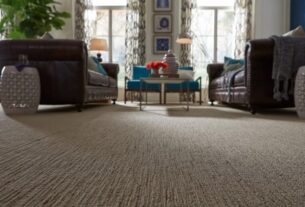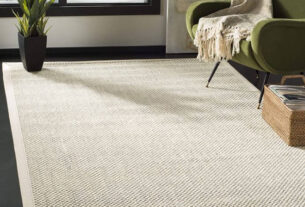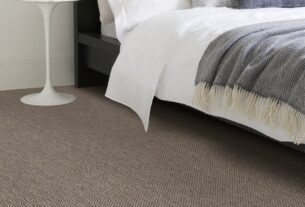Mosques are not just places of worship; they are also centers of community gatherings and spiritual reflection. Every element of a mosque, from its architecture to its interior decor, plays a role in enhancing the worship experience. Among these, mosque carpets hold a special significance as they provide comfort to worshippers and contribute to the mosque’s overall aesthetics. In recent years, with the global shift towards sustainability, eco-friendly mosque carpets have gained popularity. This article explores the rise of sustainable and recyclable materials in mosque Carpets Dubai and how they are revolutionizing the industry.
The Need for Sustainable Mosque Carpets
Environmental concerns have become a major topic of discussion across industries, including interior design and textiles. Traditional mosque carpets are often made from synthetic fibers, which are derived from petroleum-based products and contribute to pollution and carbon emissions. Additionally, the production of these carpets involves chemical treatments that can be harmful to both the environment and human health.
Given that mosques see high foot traffic, carpets wear out over time and need replacement. Unfortunately, many synthetic carpets end up in landfills, taking decades to decompose. The need for sustainable mosque carpets arises from a responsibility to protect the environment while maintaining the spiritual sanctity of prayer spaces. The shift towards eco-friendly carpets ensures that worshippers can pray in a space that aligns with the principles of sustainability and ethical responsibility.
Sustainable Materials Used in Mosque Carpets
The development of eco-friendly mosque carpets has led to the use of innovative materials that are both sustainable and durable. Some of the most common materials used include:
Natural Wool
Wool has been used for centuries in carpet making due to its durability, comfort, and natural insulating properties. It is a renewable resource, biodegradable, and does not release harmful chemicals into the environment. Wool carpets also have natural anti-bacterial properties, making them a hygienic choice for mosques.
Recycled Nylon and PET Fibers
Modern technology allows for the recycling of plastic bottles and old carpets into high-quality carpet fibers. Recycled PET (polyethylene terephthalate) and nylon fibers help reduce plastic waste while offering a durable and stain-resistant solution for mosque carpets. These materials mimic the softness and resilience of traditional synthetic carpets but with a significantly lower environmental impact.
Organic Cotton and Jute
Organic cotton and jute are plant-based fibers that are both biodegradable and renewable. Jute, in particular, is known for its strength and durability, making it a great option for mosque carpets that experience heavy foot traffic.
Bamboo Silk
Bamboo is one of the fastest-growing renewable resources in the world. Bamboo silk is derived from bamboo cellulose and is used in carpets to add a luxurious sheen and softness. This material is eco-friendly and naturally resistant to dust mites and bacteria, making it ideal for prayer areas.
The Benefits of Eco-Friendly Mosque Carpets
Opting for sustainable mosque carpets comes with numerous benefits, not only for the environment but also for the worshippers and mosque management. Some of the key benefits include:
Reduced Carbon Footprint
Sustainable carpets use renewable and recycled materials, significantly reducing carbon emissions associated with carpet production. The manufacturing process also consumes less energy and water compared to conventional carpet production.
Improved Indoor Air Quality
Traditional carpets often contain volatile organic compounds (VOCs) and chemical treatments that can emit harmful fumes. Eco-friendly carpets are made from natural or low-VOC materials, improving indoor air quality and reducing the risk of respiratory issues for worshippers.
Durability and Longevity
Many sustainable carpet materials, such as wool and recycled nylon, are designed to withstand heavy foot traffic. This ensures that the carpets last longer, reducing the frequency of replacement and minimizing waste.
Easy Maintenance
Natural fibers like wool and jute repel dust and stains better than synthetic materials, making them easier to clean. This reduces the need for harsh chemical cleaners, further contributing to environmental sustainability.
Spiritual and Ethical Harmony
Islam encourages responsible stewardship of the Earth (khilafah). By choosing eco-friendly mosque carpets, mosques align with Islamic principles of sustainability and ethical responsibility, setting an example for the community.
How Mosques Can Transition to Eco-Friendly Carpets
Making the shift to sustainable mosque carpets requires careful planning and consideration. Here are some steps mosques can take to transition:
Assess the Current Carpet Situation
Before replacing existing carpets, mosque management should assess their current condition and determine whether they can be repurposed or recycled.
Choose Sustainable Suppliers
Working with carpet manufacturers that specialize in eco-friendly and recyclable materials ensures that mosques get high-quality products that meet sustainability standards.
Educate the Community
Raising awareness among worshippers about the benefits of sustainable mosque carpets fosters community involvement and encourages donations or funding for the transition.
Opt for Modular Carpet Tiles
Instead of using large carpet rolls, mosques can consider modular carpet tiles made from recycled materials. These are easier to replace in case of wear and tear, reducing overall waste.
Implement Proper Disposal Methods
When old carpets need to be replaced, mosques should explore recycling programs or donation options to prevent them from ending up in landfills.
Conclusion
As the world moves towards sustainable living, mosques have an opportunity to lead by example in adopting eco-friendly solutions. Sustainable Mosque Carpets Dubai not only reduce environmental impact but also enhance the worship experience by providing a healthier and more ethical space for prayer. By embracing natural and recycled materials, mosques can align with both Islamic values and modern sustainability practices, ensuring that future generations inherit a cleaner, greener world.





